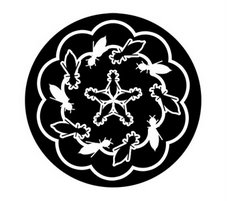Urban Kamaru
Central Luzon Daily
In a certain forum on the Internet, members are arguing on whether Manny Pacquiao's victory against Hampton should be given that much of a deal, to the point of labeling a boxing champ a national treasure. The thing is, in the Philippines, it's no longer a question of whether it should given that much of a deal because obviously, it already has for past years.
Named the “National Fist” of the country, everytime Pacquiao's match abroad arises, the Philippines—from the urban to the rural—is expected to lay still like it's celebrating a holiday. All eyes, regardless if they belong to Muslims, Christians, the poor, or the elite, are on his match, and the unofficial celebration rivals even Ramadan or Good Friday. Crime rate can go as far as zero percent and comes the time Pacquiao knocks out his opponent, we all jump together in triumph like winning a war against an invading country.
I am not here to judge whether this is bad or good. In the country of Barbados, RnB sensation Rihanna is very admired, in that the government decided to appoint a Rihanna Day in its calendar. It's a national holiday! In South Korea, international pop star BoA has been given an award by their President because her musical prominence in both South Korea and Japan is said to have contributed to the easing of the tension between the two countries (South Korea was invaded by Japan in the past).
However, it's slightly different in the Philippines because Pacquiao's victory, whenever it arises, seems to be the most important moment for the Filipinos. Pride rises from the heart to the head, and it makes the Filipinos think, “Damn, I so love being a Filipino.” In fact, I don't think our national hero Jose Rizal has ever causes current Filipinos to feel that way.
Manic with Pacquiao
The reason Filipinos are manic with what some intellectuals call “shallow” bases of pride—such as Charice Pempengco making waves in the US, Manny Pacquiao's winning in matches, or even Apl De Ap's inclusion in the Black Eyed Peas, is because we are a quasi-nation state.
A quasi nation-state is a community (like the Philippines) where the state was formed first before the nation. We know our Philippine history. The Spaniards forced us together into a country, not caring about our cultural diversity, linguistic dissimilarities, and regional competitions. Mindanao, they say, has never been conquered by the Spaniards; that is why they are asserting their “right” to secede from the Republic.
There were several ethnic groups that, in the past, formed several small “nations,” with their own specific languages, goals, songs, customs, etc. These small nations were forced together against their will. And so, trouble begins.
Now that the physical invaders are gone, and now that the Philippines is left to the hands of the natives, we are struggling to make ourselves a nation despite the long existence of the state. Difference is, the state was formerly in the hands of foreigners.
This quest for nationhood is the reason we have the National Bird, National Song, National Dance, National Language, etc. even though for example, the Northern Luzon people do not dance the tinikling, or even though majority of Visayas and Mindanao people used to not speak Tagalog at all.
Each ethnic group has its own precolonial gems of pride—local heroes, folklore, dances, literature, and cuisine—but since we are now one, these are usually dissolved. Lucky are those that get absorbed into the national scene, like the Barong Tagalog and the Sinawali style of arnis, to become Filipino property instead of, for example, Cebuano, Pampango, or Igorot properties.
Vacant positions
Since the Filipino nation is a new thing, we are desperate in finding other sources of Pinoy pride. Kapampangan pride, Ilonggo pride, Waray pride—these are all to be shut off because regionalism is said to be one of the major hindrances to national unity. “We need Filipino pride!” nationalists wail. The government and the educational institution solve this by trying to produce competent contemporary artists in the realm of high art: painting, ballet, classical music, cinema, etc. But honestly, do the masses look up to the high arts? Does even the middle class look up to the high arts? I think they look up more to pop icons.
So when popular cases like Pacquiao, Pempengco, Apl De Ap, or even the Filipino chefs in the White House, reach the consciousness of the masses through local mass media, they rejoice and claim they are proud to be Pinoy, because without them, we feel we are losers in the global arena, with all the bad news and reputations we have—corruption, unlawfulness, tax evasions, scandals, and poor waste management. Other countries like China, Korea, or the US don't care if any of their citizens or expatriates make it big in the Philippines because they appear to be not insecure.
We are insecure!
This artificial, fragile pride of ours is also the reason that whenever someone blasts the Filipinos, we whine like crybabies. Remember the so-called ethnic slur from Desperate Housewives? The 'Family Guy' cartoon and the 'Mr. and Mrs. Smith' movie also had made fun of Filipinos in one of their lines, but they're lucky Filipinos didn't pick them up. And let's not forget the Hong Kong-based columnist.
That's how fragile our national pride is. Atuan me mung bagya, kumiak ne. I am quite sure there are plenty more Filipinos who have wrote negatively about Americans, Koreans, or other nationalities, but I am also quite sure we never heard anything from them—nothing compared to how far we want to go to express our national disappointments. They never made petitions or rallies or whatever, asking for public apologies and stuff. American shows make fun of Koreans, Chinese, Frenchmen, Canadians, and Mexicans more but they don't act like crybabies like Filipinos.
Omitting the Quasi
The transition from being a quasi nation state to being a genuine state is a hard one. It's going against our nature because nationalizing ourselves means extinguishing some items that make up our diversity, as the less powerful ethnic groups are systematically forced to succumb to national policies (that are supposed to be democratic). Remember how Ramadan used to be NOT a holiday for non-Muslims in the Philippines, yet Muslims take a holiday during Christmas because government said so?
This is not unique to Filipinos though. China is undergoing the same process, trying to eliminate its diversity with its “Zonghua Minzhu” concept. “One China,” the People's Republic says. Rebels like the Tibetans are pacified and Taiwan is endlessly being wooed into unifying with China. Only Mandarin is the language in China and the others are systematically reduced to dialects (like in the Philippines). What makes them successful in their nationalizing actions is that they have an authoritarian government which has access to lots of resources.
The Filipino government cannot do that because it is poor and democracy is highly fought for.








No comments:
Post a Comment